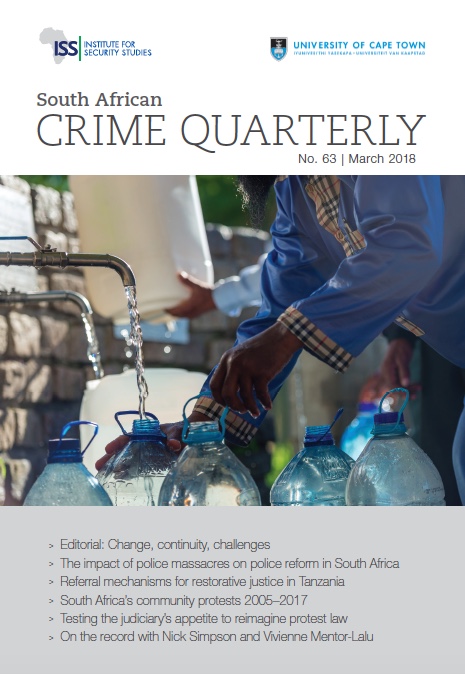Testing the judiciary's appetite to reimagine protest law: A case note on the SJC10 case
DOI:
https://doi.org/10.17159/2413-3108/2018/i63a4509Abstract
Judgment in the long-awaited SJC10 case was handed down on 24 January 2018. This case marks a victory for the collective bane on civil society – that of the criminalisation of a convener of a protest for the failure to provide notice. It goes a long way to opening the space for more serious engagement on the legitimacy of the Regulation of Gatherings Act 1993 and its possible reformulation to give effect to section 17 of the Constitution – the right to peaceful and unarmed assembly. This appeal to the high court was brought by the SJC on very limited grounds, focusing only on the requirement to provide notice – a strategy that has paid off, as the contested section of the Regulation of Gatherings Act was declared unconstitutional. This case note dissects some of the key arguments raised by the SJC and by the state, and analyses the court’s reasoning in reaching this finding.
Downloads
Downloads
Published
Issue
Section
License
Copyright (c) 2018 Author and Institute for Security Studies/University of Cape Town

This work is licensed under a Creative Commons Attribution 4.0 International License.
SACQ is licenced under a creative commons licence (CC BY) that allows others to distribute, remix, tweak, and build upon your work, even commercially, as long a they give appropriate credit, provide a link to the license, and indicate if changes were made. They may do so in any reasonable manner, but not in any way that suggests the licensor endorses you or your use.
Copyright for articles published is vested equally between the author/s, the Institute for Security Studies and the Centre of Criminology (UCT).



.png)